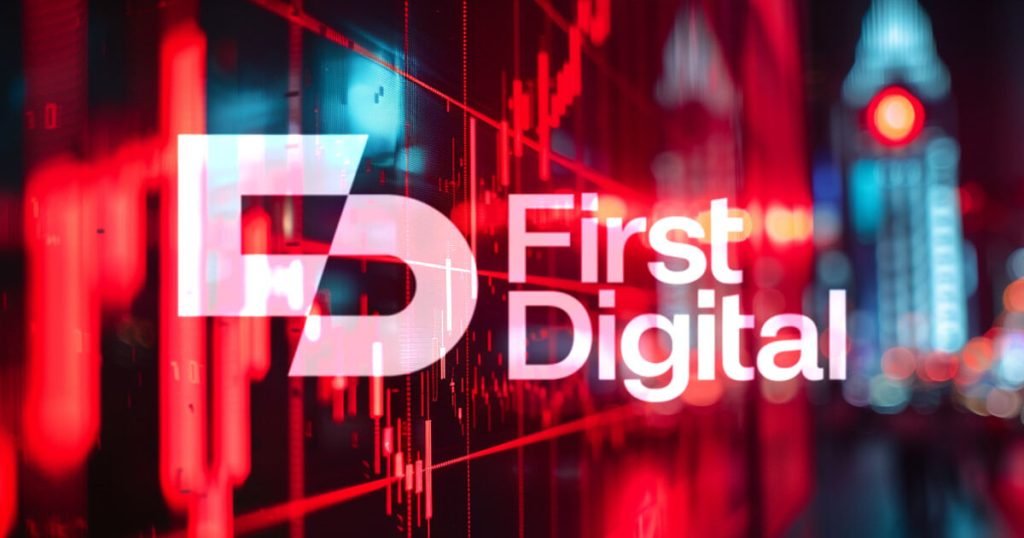First Digital Trust Denies Insolvency Allegations Amidst Stablecoin Turmoil
In a recent turn of events, First Digital Trust (FDT) has vigorously refuted claims made by cryptocurrency founder Justin Sun regarding the insolvency of its stablecoin, FDUSD. Sun’s allegations, presented in a social media post, suggested that FDT was unable to fulfill redemption requests for FDUSD, which is purportedly backed by US Treasury bills. Following Sun’s claims, FDUSD experienced a significant depeg, plummeting to a low of $0.8726 before partially recovering to $0.9870, igniting concerns over the stablecoin’s solvency and the transparency of its issuing body. This incident also sparked apprehension regarding Binance, a prominent cryptocurrency exchange that holds substantial amounts of FDUSD.
In the wake of these allegations, First Digital Trust emphasized that the controversy primarily concerns TrueUSD (TUSD) rather than FDUSD. The company firmly stated that all reserves backing FDUSD are fully verifiable through US Treasury bills. FDT highlighted that the specific ISIN numbers correlating to their reserves are available in their attestation report. The firm did not shy away from criticizing Sun’s public assertions, claiming they constitute a "smear campaign" aimed at undermining a competitor in the crypto space. FDT reaffirmed that every dollar supporting FDUSD is secure, accounted for, and invested in US-backed Treasury bills. The company indicated its intention to initiate legal proceedings to defend its reputation and interests amidst this controversy.
Justin Sun’s remarks urging users to withdraw their assets related to First Digital Trust were cited as the catalyst for FDUSD’s depeg. He raised concerns about the vulnerabilities in Hong Kong’s trust licensing and governance system, urging regulators to take prompt action to safeguard investors and protect Hong Kong’s standing as a global financial hub. Sun’s comments have further fueled discussions around the reliability of FDT’s operations and the systemic risks that could affect Binance, which reportedly holds over 90% of FDUSD in circulation.
Conor Grogan, head of product business operations at Coinbase, noted that Binance has significant exposure to FDUSD, with approximately $2.2 billion held across user deposits and corporate funds. This considerable stake raises operational concerns, particularly as FDUSD has been one of the platform’s most traded assets, especially following Binance’s shift away from the controversial Binance USD (BUSD). Throughout early 2023, Binance began distancing itself from BUSD amid regulatory scrutiny, promoting FDUSD alongside other alternatives such as USDT and TUSD.
This latest crisis underscores the differences between the regulated wind-down of BUSD and the ongoing instability of FDUSD. The former was backed by a US-regulated issuer, while FDUSD has positioned itself as a compliant alternative in alignment with Hong Kong’s regulatory landscape. Nevertheless, the swift integration of FDUSD into Binance’s infrastructure has resulted in significant reputational and operational risks for the exchange in light of the recent turmoil. While reports suggest that FDUSD maintains a 111% collateralization status, doubts surrounding its liquidity and redemption mechanisms have been reignited.
As the situation unfolds, regulatory scrutiny is anticipated, especially for Binance. The exchange has been vocal about its renewed commitment to compliance and transparency following the BUSD incident. However, FDUSD’s instability raises critical questions about Binance’s due diligence and risk assessment procedures regarding third-party stablecoin issuers. The repercussions of these developments could have lasting implications not only for Binance but also for the broader cryptocurrency market, emphasizing the delicate balance between innovation and regulation in the fast-evolving digital financial landscape.
In conclusion, the claims surrounding First Digital Trust and its stablecoin, FDUSD, highlight the complexities and vulnerabilities inherent in the cryptocurrency sector. With significant implications for users, exchanges, and the regulatory environment alike, it remains essential to watch how FDT responds to the allegations and how Binance navigates its exposure in this challenging scenario. As the crypto market continues to evolve, the need for transparency, security, and compliance becomes even more paramount in maintaining trust among users and stakeholders.


